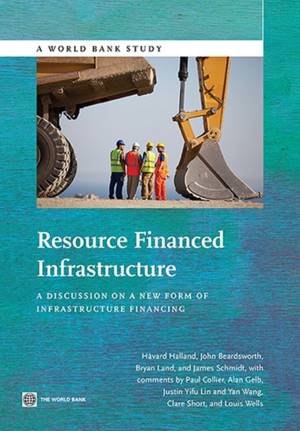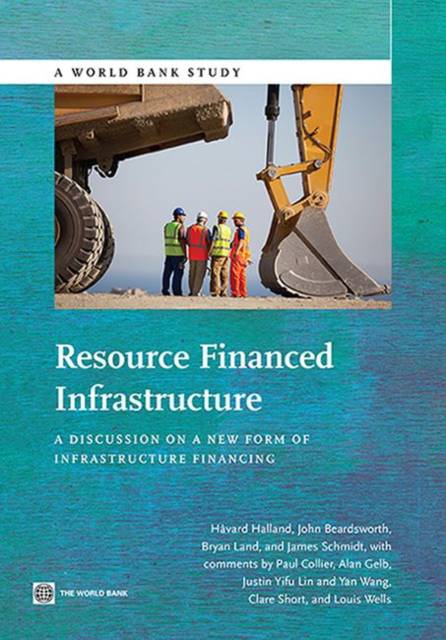
Bedankt voor het vertrouwen het afgelopen jaar! Om jou te bedanken bieden we GRATIS verzending (in België) aan op alles gedurende de hele maand januari.
- Afhalen na 1 uur in een winkel met voorraad
- In januari gratis thuislevering in België
- Ruim aanbod met 7 miljoen producten
Bedankt voor het vertrouwen het afgelopen jaar! Om jou te bedanken bieden we GRATIS verzending (in België) aan op alles gedurende de hele maand januari.
- Afhalen na 1 uur in een winkel met voorraad
- In januari gratis thuislevering in België
- Ruim aanbod met 7 miljoen producten
Zoeken
Resource Financed Infrastructure
A Discussion on a New Form of Infrastructure Financing
Håvard Halland, John Beardsworth, Bryan Land, James Schmidt
€ 50,95
+ 101 punten
Omschrijving
In recent decades, resource-rich developing countries have been using their natural resources as collateral to access sources of finance for investment, countervailing the barriers they face when accessing conventional bank lending and capital markets. One of the financing models that have emerged as a result is the Resource Financed Infrastructure (RFI) model, a derivation of previous oil-backed lending models pioneered by several Western banks in Africa. Under a Resource Financed Infrastructure (RFI) arrangement, a loan for current infrastructure construction is securitized against the net present value of a future revenue stream from oil or mineral extraction. The model has been applied in several African countries, for a cumulative contract value of approximately $30 billion, according to publically available sources. This report, consisting of a study prepared by global project finance specialists Hunton & Williams LLP and comments from six internationally reputed economists and policy makers, provides an analytical discussion of resource-financed infrastructure (RFI) contracting from a project finance perspective. The report is meant as a forum for in-depth discussion and as a basis for further research into RFI's role, risks, and potential, without any intention to present a World Bank-supported view on RFI contracting. It is motivated by the conviction that if countries are to continue to either seek RFI or receive unsolicited RFI proposals, there is an onus on public officials to discern bad deals from good, to judge unavoidable trade-offs, and to act accordingly. The report aims to provide a basis for developing insights on how RFI deals can be made subject to the same degree of public policy scrutiny as any other instrument through which a government of a low- or lower-middle-income country might seek to mobilize development finance.
Specificaties
Betrokkenen
- Auteur(s):
- Uitgeverij:
Inhoud
- Aantal bladzijden:
- 113
- Taal:
- Engels
- Reeks:
Eigenschappen
- Productcode (EAN):
- 9781464802393
- Verschijningsdatum:
- 18/06/2014
- Uitvoering:
- Paperback
- Formaat:
- Trade paperback (VS)
- Afmetingen:
- 178 mm x 254 mm
- Gewicht:
- 204 g

Alleen bij Standaard Boekhandel
+ 101 punten op je klantenkaart van Standaard Boekhandel
Beoordelingen
We publiceren alleen reviews die voldoen aan de voorwaarden voor reviews. Bekijk onze voorwaarden voor reviews.









